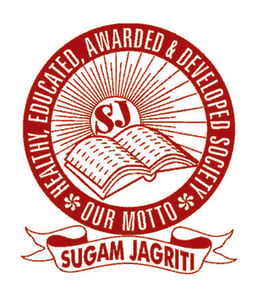
Empowering youths through Digital Literacy Trg -Bihar, India
- Raised
- $0
- Goal
- $31,200
SUMMARY
In an increasingly digitalized world, access to technology and digital literacy skills & Soft Skill has become indispensable for economic empowerment, educational advancement, and social inclusion. However, underserved women and girls, particularly in Bihar State of India, often face significant barriers to accessing digital opportunities and perpetuating existing inequalities. Recognizing the transformative potential of digital literacy initiatives, our organization-Sugam Jagriti is stepping up to bridge this gap and empower undeserved women and girls in Islampur block in Nalanda district in Bihar through digital literacy training programs.
Through training, mentorship, and community support, these initiatives are not only equipping women and girls with essential digital skills but also fostering confidence, leadership, and opportunities for their socio-economic growth. Digital literacy training goes beyond teaching basic technical skills; it encompasses a holistic approach that addresses various aspects of digital empowerment. Such training equips underserved women and girls with the knowledge and skills to navigate the digital landscape confidently, participate meaningfully in online spaces, and harness digital tools for personal and professional development. Let's explore the transformative power of comprehensive digital literacy training in advancing underserved women and girls in Bihar.
CHALLENGE
Underserved women and girls, including those from low-income communities, rural areas, and marginalized groups in Islampur block of Nalanda district in Bihar encounter multifaceted barriers to accessing digital literacy training. These barriers may include limited access to technology and the internet, lack of awareness about digital opportunities, cultural norms that discourage women's participation in technology-related fields, and gender-based discrimination online.
OBJECTIVES
(a) To teach essential computer skills, including operating systems, file management, word processing, spread sheet creation, and presentation software to the participants.
(b) To enable them to understand internet usage, e-mail communication, online safety, and social media platforms thus allowing them to engage confidently in the digital realm.
(c) To educate them on responsible digital behaviour, responsible internet use and online community engagement.
(d) To empower them with marketable skills, opening doors to employment/self-employment prospects and career advancement in a digitally driven world.
PROPOSED SOLUTION
(1) Needs Assessment: Conduct a comprehensive assessment of the digital literacy needs and identify the target audience’s specific requirements to implement the program accordingly.
(2) Curriculum Development: Design a curriculum that covers fundamental computer skills, internet usage, online safety, and digital citizenship. The curriculum should be structured, engaging, and accessible to participants with varying levels of prior knowledge.
(3) Training Sessions: Organize regular computer training sessions at the identified community centre for 3 months or other accessible venues. These sessions will be conducted by local computer trainers.
(4) Hands-on Practice: Provide participants access to computers and the internet during the training sessions, allowing them to apply the acquired knowledge in a practical setting.
(5) Resource Materials: Develop user-friendly training materials to reinforce learning.
(6) Organize Awareness Campaign: To promote the importance of digital literacy for women and girls regular awareness campaigns will be organized to break stereotypes, challenge biases, and inspire more women to embrace the digital world.
(7) Assessments and Certifications: Implement regular assessments to track participants’ progress and provide certifications upon completion, reinforcing their achievements and enhancing their employability/self-employability prospects.
LONG TERM IMPACT
With their computer skills, 5000 girls will generate income and provide additional financial support to their family expenses to lead their day- to-day life and daily bread. Their dignity in the family and society will improve overall.
